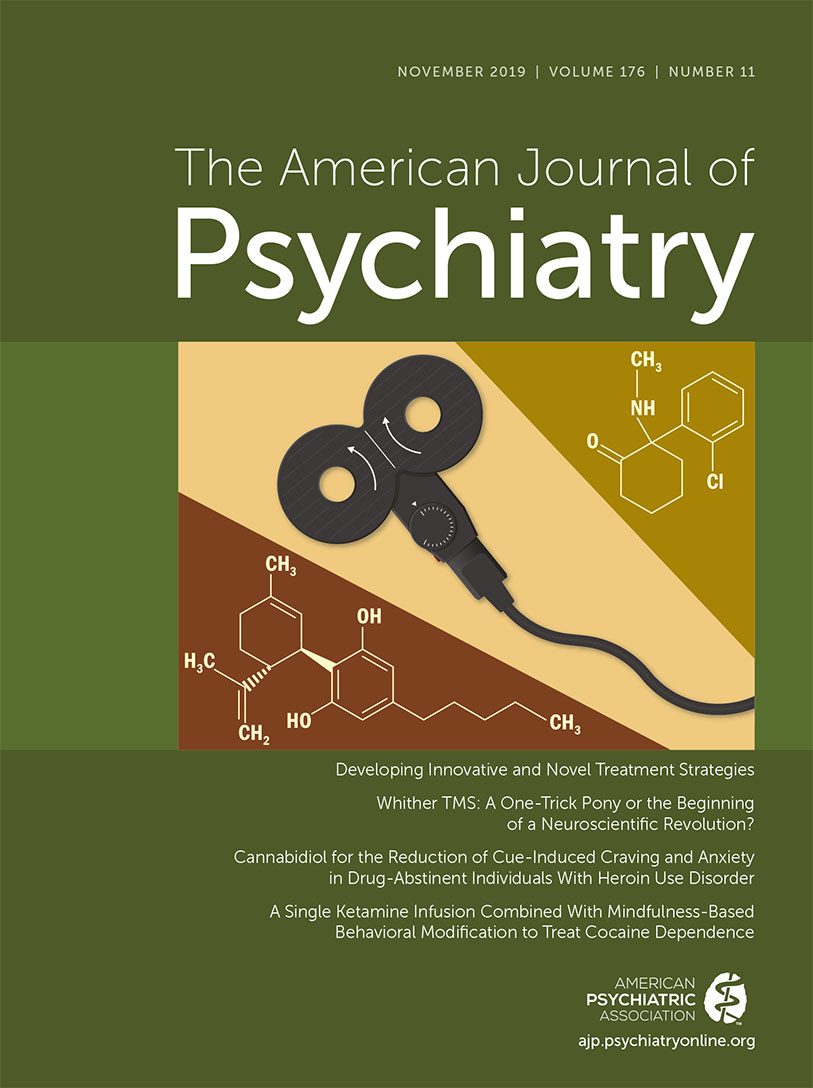Esketamine and the Need for a New Type of Registry for Drugs With Abuse Potential
To the Editor: Schatzberg (1) and others (2) are right to urge caution in the adoption of esketamine for treatment-resistant depression, but not only because of any effect on opiate pharmacology. The real risk lies in the reliance induced by rapid symptom relief followed by rapid relapse and in how this effect may intersect with socioeconomic status.
Low income independently predicts poor response to repeated ketamine infusions (3), and partial responders tend to take esketamine more frequently and at shorter intervals than those who remit (4). Patients with low income may therefore be at greater risk of developing the tolerance that is warned of in the esketamine nasal spray data sheet (5). Low ability to pay, or other restrictions to access, may also increase switching to cheaper or illegal alternatives.
By asking about previous ketamine use, as well as logging each esketamine treatment, the current esketamine nasal spray registry (6) can assess switching from ketamine to esketamine. However, it crucially fails to track the more likely switch from esketamine to medically administered ketamine, or to illegal ketamine. In the United Kingdom, we are advocating for the introduction of a single digital registry platform for collecting data on all new drugs with abuse potential. This includes esketamine, medically prescribed ketamine, and unwise, but potentially numerically dominant, self-treatment with nonprescribed ketamine.
Postmarketing drug registries are well suited for examining longer-term effects of newly licensed products. However, patterns of switching from one drug with abuse potential to another cannot, self-evidently, be assessed in a registry that collects data about only one product. Collecting data on patients defined by their disease (e.g., treatment-resistant depression) would fail to capture information about those taking the drug off label. The problem requires a new class of “multiproduct” registries that can include off-label use and generic medications as well as new entrants. There is a pipeline of rapidly acting antidepressants in development, some of which have abuse potential, so stakeholders cannot afford to put decisions about the funding models for such registries into the “too difficult” basket.
1 : A word to the wise about intranasal esketamine. Am J Psychiatry 2019; 176:422–424Link, Google Scholar
2 : Can a framework be established for the safe use of ketamine? (editorial). Am J Psychiatry 2018; 175:587–589Link, Google Scholar
3 : Rapid and longer-term antidepressant effects of repeated-dose intravenous ketamine for patients with unipolar and bipolar depression. J Psychiatr Res 2018; 106:61–68Crossref, Medline, Google Scholar
4
5 Spravato (package insert). Beerse, Belgium, Janssen Research and Development, 2019 (http://www.janssenlabels.com/package-insert/product-monograph/prescribing-information/SPRAVATO-pi.pdf)Google Scholar
6 Spravato Risk Evaluation and Mitigation Strategy Patient Monitoring Form, 2019 (https://www.spravatorems.com/pdfs/SPRAVATO(TM)_REMS_Patient_Monitoring_Form.pdf)Google Scholar



